Although Oberlin women worked very hard at home and in their
gardens, they also organized and participated in a number of town and
College groups. Wives of the College faculty formed a group called
"The Ladies' Board." Their job was to make sure that the female
students at the College followed strict rules for proper dress,
classroom behavior, and attendance at church. There were other rules,
as well. For instance, one strange rule was: "never wear a dress and
cape of different colors."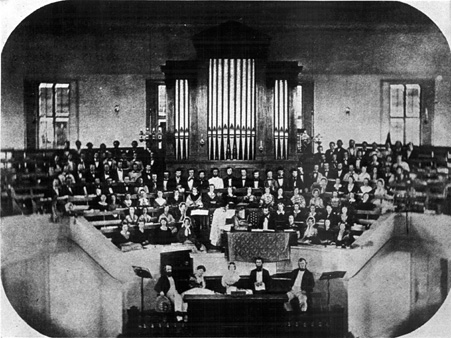
Other groups were called "associations" or "societies." They included the "Oberlin Musical Association," now called the "Musical Union." This large group of men and women, students and townspeople, sang at First Congregational Church. People, from as far away as Cleveland, traveled by horses and buggies to Oberlin to hear their concerts.
Most Oberlin women believed that slavery was wrong, and some formed a "Ladies' Antislavery Society." They raised money to pay for antislavery speakers to travel the country and tell others why slavery was not only wrong, but a sin. Early Oberlin villagers believed that God had called them to work together with the College to make the world a better place. That meant helping African-Americans become free so they could enjoy the same rights as white people.
Before 1833 women were not allowed to do many things that women take for granted today. For instance: women could not attend colleges. In those days, there were only a small number of American colleges, and most of them were in New England, like Harvard and Yale. Only a few men went to these colleges. These men wanted to learn more about about the world. They also took college classes to become qualified as ministers, professors, lawyers and doctors. There were no rocket scientists in those days, no electrical engineers, and no computer experts. The world has changed a lot since Oberlin College first opened its doors in November 1833.
Oberlin College is known for two great social reforms. It was the
first college in the world to admit women as well as men. It also was
the first college that promised to educate African-American men and
women.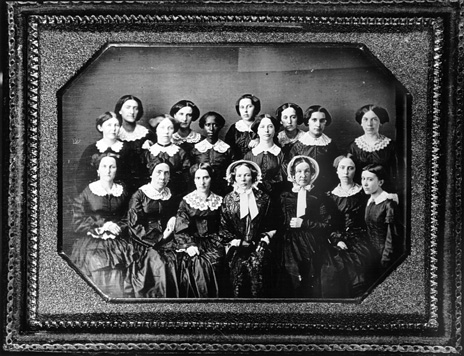
Today, nearly all colleges and universities teach black and white men and women. But in the 1830s this was unheard of. For many years, Oberlin was the only place where black women could take college classes.
One of the reasons women did not go to college in those days was because they could not become ministers, doctors, or lawyers. Most people thought that, because women became wives, mothers or teachers of young children, they didn't NEED to learn more about the world. But, at Oberlin, people believed that women could become even better teachers, wives, and mothers if they were able to take college classes along with men.
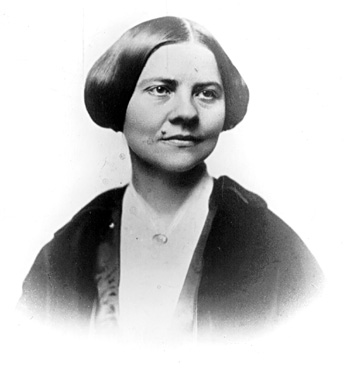
Lucy Stone Speaks Out
Some women, who were students at the College, felt so strongly about the sin of slavery, that they began to give speeches in and around Oberlin. In those days, just as women could not become ministers or lawyers, they could not give public speeches. This was because most people believed that there were passages in the Bible that warned against women speaking in public.
One Oberlin student, Lucy Stone, believed that the Bible's warnings for women were not really understood. So, she took classes in Greek and Hebrew, for they were the languages used by the writers of the Bible centuries before. She then could read these passages in the languages in which they were written, not in later translations. Lucy Stone believed that the Bible was "on the side of women." She also believed that women should be allowed to speak out whenever and wherever they saw wrongs in the world.
Lucy Stone became a well-known speaker against slavery. She lectured all over the country, and many men and women came to hear her. She later became even better known as a leader in the Women's Rights movement.
This movement came about not only because women could not become ministers, doctors, or lawyers, but also because they were not allowed to vote in either local or national elections. Nor could women own a home, or even testify in court. Women had very few rights at all.
On the other hand, women were expected to pay taxes to the government, even though they were not allowed to vote for the people in Congress who made the laws. Lucy Stone said, "This is wrong."
Soon, many women from all over the country began to work for women's rights, and for woman's suffrage. "Suffrage," means "the right or privilege of voting." Many women worked for woman's suffrage in the Nineteenth Century.
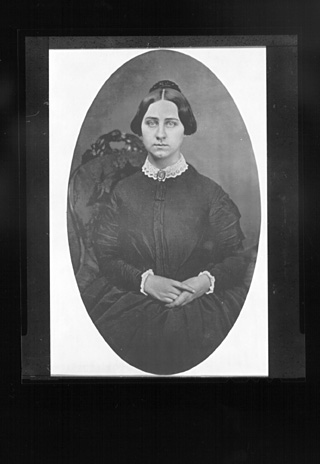 At
Oberlin, besides Lucy Stone, a number of women students also became
well-known pioneers in professions that earlier had been open only to
men. Antoinette Brown Blackwell, Lucy's closest student friend at
Oberlin, became the first ordained woman minister in the country.
While she was studying in Oberlin, she preached at many nearby
village churches. She was the first women anyone here had ever seen
in a pulpit.
At
Oberlin, besides Lucy Stone, a number of women students also became
well-known pioneers in professions that earlier had been open only to
men. Antoinette Brown Blackwell, Lucy's closest student friend at
Oberlin, became the first ordained woman minister in the country.
While she was studying in Oberlin, she preached at many nearby
village churches. She was the first women anyone here had ever seen
in a pulpit.
Many Oberlin women became famous educators. Mary Jane Patterson, who grew up in Oberlin, became a student at the College. She and her family lived in "Patterson's Corner", a combination house and grocery store that her father built on the south east corner of Main and Lorain Streets.
In 1862, Mary Jane Patterson became America's first black woman to receive a college degree. She later taught school in Washington, D.C. and there became the first woman principal of Dunbar High School, where many famous African-Americans graduated.
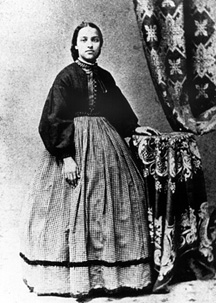
Black and white Oberlin women were pioneers in opening up many professions that had been closed to women. As educators and reformers, Oberlin women helped make the world a better place.
How are women's lives now different from their lives in the 1830s and 1840s?
What could you say to someone who asked how Oberlin helped change women's roles?
Oberlin: Yesterday, Today, Tomorrow Home
Page | Table of Contents | ![]()
![]()